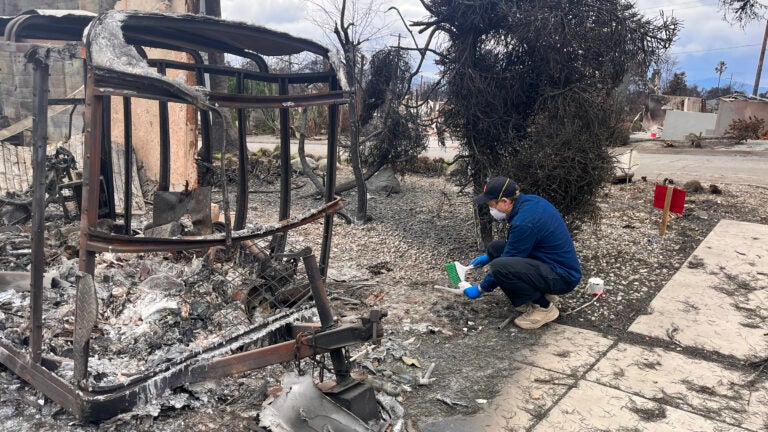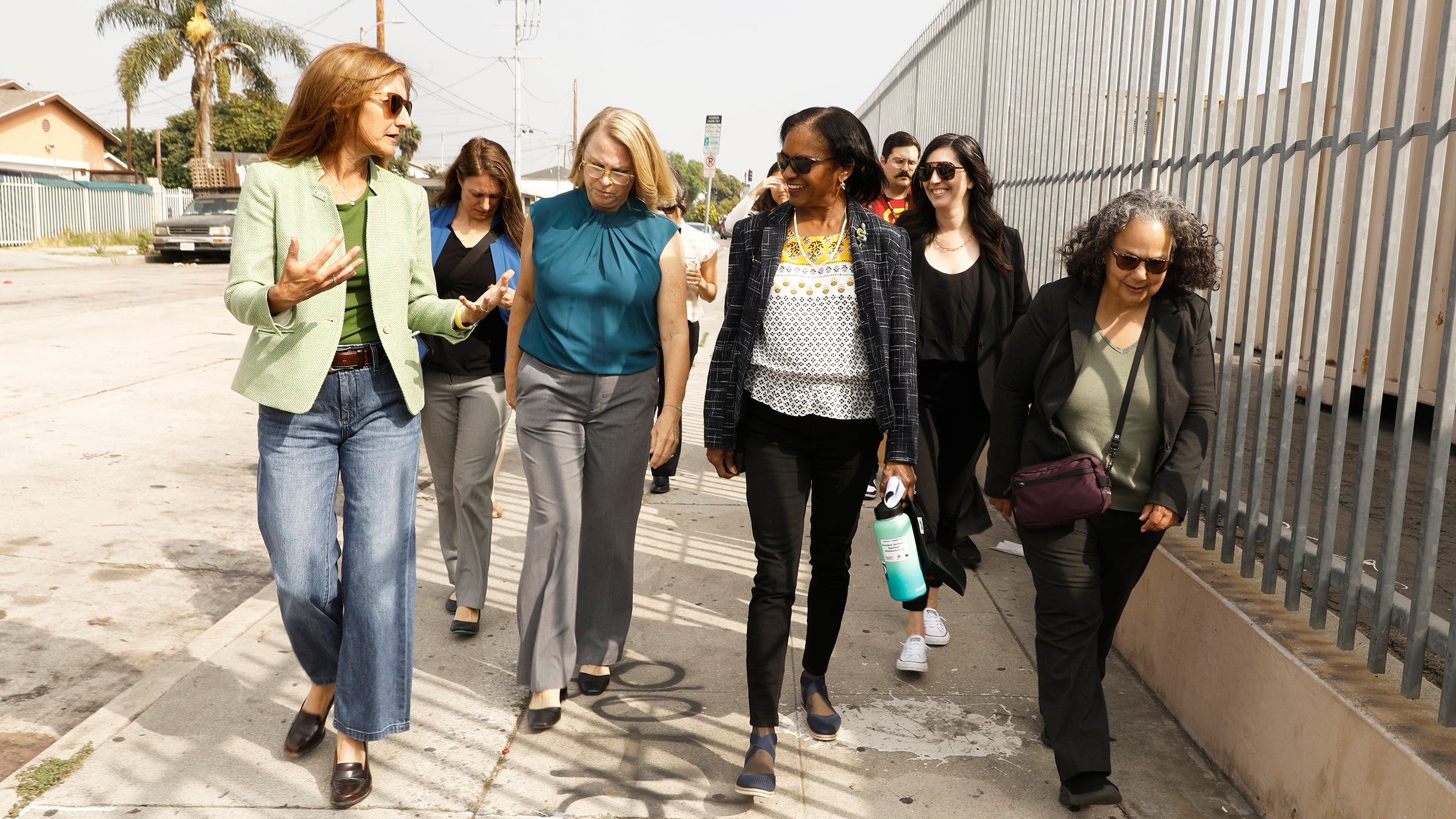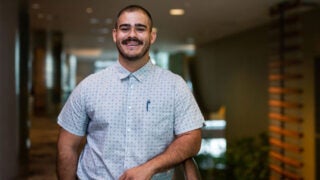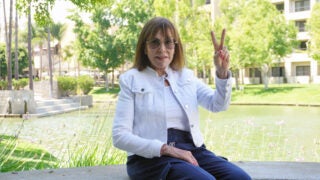
Seth John collects a soil sample from a burned building in Altadena as part of CLEAN (Contaminant Level Evaluation and Analysis for Neighborhoods), launched by USC Public Exchange and USC Dornsife Earth Sciences experts after the January wildfires. (Photo/Courtesy of USC Dornsife Earth Sciences)
Public Exchange expands from USC to Washington University in St. Louis
Public-private partnerships push university research beyond theory and into action to help city leaders, nonprofits and public agencies solve real-world problems.
USC and Washington University in St. Louis (WashU) announced Thursday that they have teamed up to expand Public Exchange — a model first created at USC to connect academic research with city leaders, nonprofits and businesses tackling urgent community issues — into a growing network.
The universities will work together to develop solutions-focused partnerships that address challenges in their respective regions, such as disaster recovery, food insecurity and climate resilience, while also sharing tools and insights across institutions nationwide.
“With over 500 research universities in the United States, we see potential to leverage this incredible community of experts to work with our local government agencies, community organizations and private companies on solutions to local problems,” said Kate Weber, executive director of USC Public Exchange.
Founded at the USC Dornsife College of Letters, Arts and Sciences in 2020, Public Exchange helps universities create the infrastructure needed to transform research theory into actionable solutions.
“Public Exchange provides a framework that allows faculty and researchers in the liberal arts and other fields to bring value to their communities and lean into one of the core purposes of institutions like ours: to improve lives and livelihoods through education, research and service,” USC Dornsife Dean James Bullock said.
Chris van Bergen, executive director of the WashU Public Exchange, shares his enthusiasm.
“This is an exciting day for WashU and St. Louis as we officially launch Public Exchange here and unlock the power of WashU to create positive change in people’s lives,” van Bergen said. “We look forward to our presence being felt widely across the region.”
Public Exchange Network: Kicking off with CLEAN
As one of the Public Exchange Network’s first joint efforts, USC and WashU are collaborating to keep residents safe in the aftermath of recent natural disasters.
After one of the worst urban wildfires in modern U.S. history destroyed much of the Pacific Palisades and Altadena neighborhoods, USC Public Exchange and USC Dornsife Earth Sciences experts launched CLEAN (Contaminant Level Evaluation and Analysis for Neighborhoods), the largest free soil lead testing program in Los Angeles County. Through CLEAN, residents can receive clear information about contaminant exposure and ways to prevent or lessen contact with toxins like lead. So far, the CLEAN team has tested soil at nearly 4,000 locations in and near the fire-ravaged neighborhoods, including homes, schools and playgrounds.
“Public Exchange’s ability to facilitate this kind of project has been really great,” said Assistant Professor Erika Garcia of the Keck School of Medicine of USC, whose role with CLEAN has included direct community interaction, data interpretation and practical guidance on sampling and understanding results.
“It’s been good to be involved on a personal level and to be able to utilize the expertise at USC,” Garcia said. “It has a beneficial impact for our community — especially a set of communities that were really devastated.”
Building on USC’s work, WashU is launching its own program this fall to provide soil testing to St. Louisans in the wake of May’s devastating EF3 tornado, which affected more than 5,000 properties across 23 miles and displaced thousands of residents.
The soil and air quality testing will address community concerns around contaminants spread by the storm itself and identify ways to mitigate the risk for further exposure from demolition efforts.
The origins of Public Exchange
Los Angeles City Forest Officer Rachel Malarich first met the then-new Public Exchange team in 2020. That first meeting turned into a five-year partnership to plant shade trees in areas of L.A. that are most vulnerable to extreme heat.

Malarich says her work has “expanded tremendously” since partnering with the program, which she described as “an incredible resource.” Under the Urban Trees Initiative, which wraps this year, Public Exchange brought USC earth scientists, spatial scientists, landscape architects and other experts in to help her meet the city’s ambitious goal of planting thousands of trees in areas of most need.
Malarich recently likened her agency’s collaboration with Public Exchange to being part of a jazz band.
“We were all playing our parts to make recommendations that were both useful to the city and grounded in community needs,” Malarich said to a gathering of Big Ten government relations teams at USC earlier this month.
Malarich and Public Exchange’s work together on the Urban Trees Initiative has evolved into ShadeLA, a new people-powered movement of key L.A. stakeholders, community organizations and everyday Angelenos working together to bring more shade to their neighborhoods and businesses.



